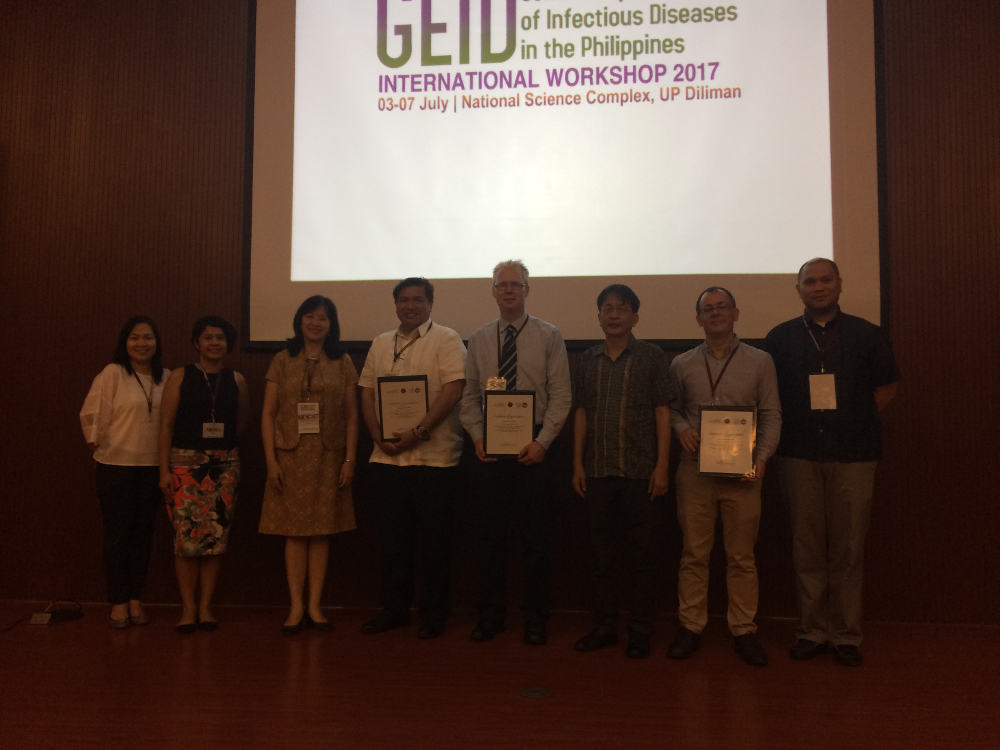Genomic Epidemiology of Infectious Diseases (GEID) is an international workshop conducted last July 3-7, 2017 at the University of the Philippines, Diliman, Quezon City
Locally-based and UK-based scientists and researchers share research studies, best practices in understanding epidemiology of infectious diseases, and how advanced tools like Next Generation sequencing and bioinformatics can aid in the detection, prevention and control of the diseases.
The Philippine Genome Center (PGC) of the University of the Philippines System in partnership with London School of Hygiene and Tropical Medicine (LSHTM), United Kingdom recently held an international workshop on genomic epidemiology of infectious diseases.Bringing together resource speakers from the country’s Department of Health, Research Institute for Tropical Medicine, and the University of the Philippines; as well as from UK’s London School of Hygiene and Tropical Medicine, University of Cambridge, and University of St. Andrews, this workshop began with lectures and discussions on genomic epidemiology of infectious diseases, relating the role of genomics to the prevention and control of infectious diseases, particularly those relevant to the Philippines.
BACKGROUND
Infectious diseases, such as HIV-AIDS, malaria, pneumonia and tuberculosis, account for 25% of global mortality and more than half of all deaths in children under the age of five years. The genetic epidemiology of these diseases can be complex, especially as they may involve several genomes, including the host, pathogen(s) and a vector. There is also a need to look beyond the genome to consider other ‘omes, such as the transcriptome, in a more systems biology framework.High throughput genotyping and sequencing technologies are providing insights into these genomes, metabolomes, transcriptomes and proteomes, thereby revolutionizing genetic epidemiological studies and biomedical research. The use of SNP chips in large-scale genome-wide studies of association and genetic selection has revolutionized the study of human disease susceptibility. Whole genome studies of pathogens using high throughput sequencing technologies is leading to the ability to track microbial evolution over time and space, and to identify variants correlated with phenotypes such as anti-microbial resistance. Further, RNA-Seq methodologies are being used to measure transcript abundance and differential gene expression across isolates.To take full advantage of new ‘omic technologies requires the ability to analyze large amounts of data using methods from bioinformatics, population genetics and statistics – the focus of this Workshop. Specifically, the Workshop offers hands-on experience in processing sequencing data to construct genomes, identifying genomic variants, and applying downstream methods such as phylogenetics. Further, the course covers transcriptomic and proteomic analysis in human and pathogen settings. High-profile examples, including malaria, TB and MRSA, will be used to illustrate these concepts, with a strong emphasis on how to implement the methods in practice, the majority of sessions being computer-based.

